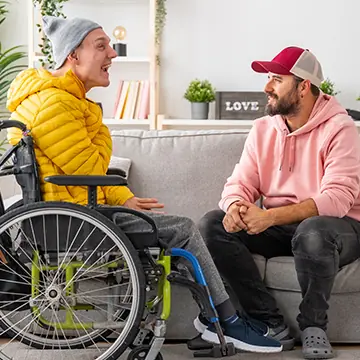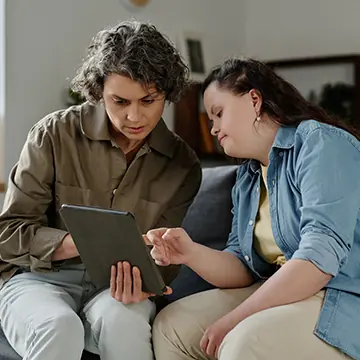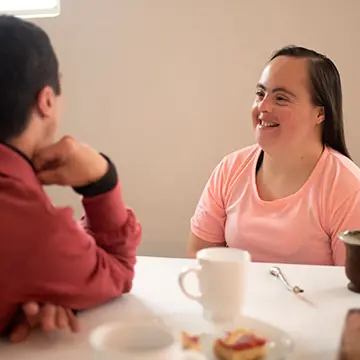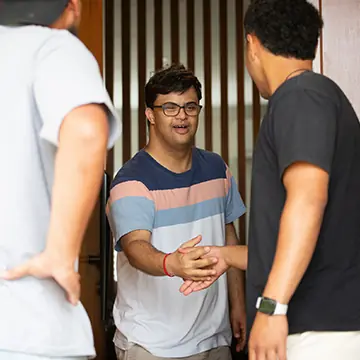Frequently Asked Questions
FAQ means questions people ask a lot.
If your question is not here, you can contact us.
We are happy to help!
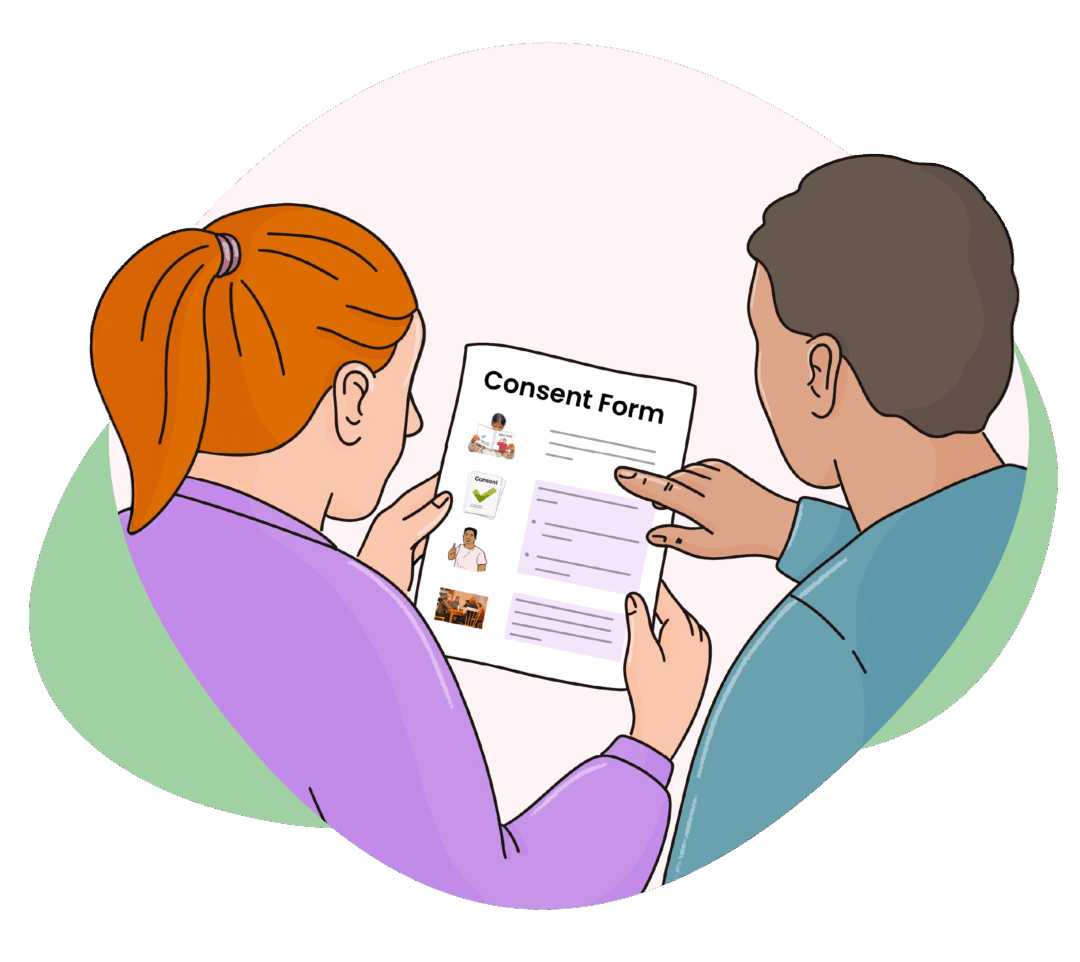
What does peer visit mean?
A peer is someone who shares many things in common with another person, such as being disabled.
They will be one of the visitors that talk to disabled people in residential services about their safety, wellbeing, and the quality of their support. Alongside an assistant.
Who is delivering People for Us?
Three organisations deliver the People for Us service:
- People First New Zealand (visiting across Aotearoa New Zealand)
- Te Ahi Kaa (visiting Tāngata Whaikaha Māori in Waikato and South Auckland)
- Vaka Tautua (visiting Pacific communities in Auckland)
People First New Zealand is at the forefront of this initiative doing visits across Aotearoa New Zealand.
How did People for Us develop?
The Insights Alliance from the Ministry of Disabled People – Whaikaha set up a Project Working Group and worked with the community to develop People for Us.
In 2023, more than 420 people, including disabled people and their whānau, assisted the design of the service.
Is People for Us a free service?
Yes, the People for Us service is fully funded by the Ministry of Social Development (MSD).
How do referrals work?
Once you fill out all the information on the referral page it gets sent to a visiting team. The visiting team will contact, schedule and undertake the visit.
Who can make a referral?
Anyone can make a referral.
This could be:
- a family member
- a support worker
- a provider
- a friend
- someone who helps you
- yourself
You can make a referral if yourself or a disabled person living in residential services may be experiencing violence, abuse, or may not be getting the right assistance and services.
What is a home funded by Disability Support Services?
This is a residential service for disabled people that is funded and contracted by Disability Support Services (DSS) under Ministry of Social Development (MSD).
Who are the visitors?
The visitors are people who come to talk with disabled people about how things are going.
There are 2 visitors:
- a disabled person who leads the visit. This person is called the Kaiārahi / Peer Worker
- a second person who assists the Kaiārahi. This person is called the Kaiāwhina / Assistant
What happens if the visitors are worried about someone’s safety or wellbeing?
The visiting team will decide what to do based on what they find out.
They might:
- do nothing if everything is okay
- assist the person to speak up
- talk to someone who can help, like whānau, advocates, health providers, or emergency services
- come back for another visit if needed.
Do you have a question for us?
